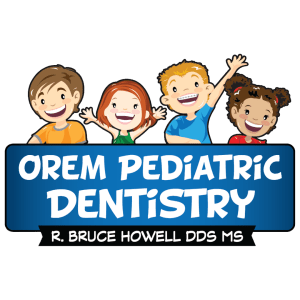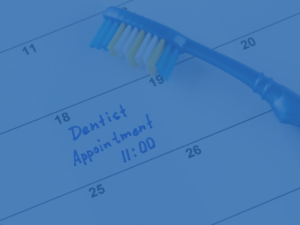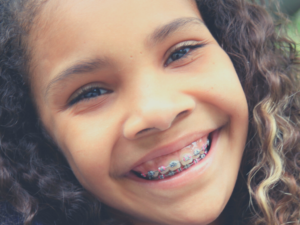I believe that teaching and establishing healthy habits is incredibly important.
Healthy dental and hygiene habits form the foundation of a child’s lifelong wellness, particularly when it comes to dental health. Establishing good habits early can lead to better oral hygiene, reduced dental anxiety, and a positive attitude toward dental visits.
In this article, I’ll cover what I think are the most important facets and how you can teach your children and young adults.
My name is Bruce Howell. I’m a pediatric dentist from right here in Orem, Utah and for nearly 40 years I’ve been educating, treating and improving the health of children, not just in Orem, but all over Utah and across the US.
I’ve seen a lot of incredible things, and I’ve had the pleasure of helping hundreds, if not thousands of parents teach their kids better habits that last a lifetime. I think some of this information can help you too. Let’s dive in.
The Importance of Early Dental Care
Pediatric dentistry focuses on the oral health needs of children from infancy through adolescence. Early dental care is crucial for several reasons:
1. Prevention
This is listed first because it is by far the most important to me.
Prevention, prevention, prevention and more prevention. There just isn’t anything quite as important as prevention.
If the teeth are properly cared for, we simply just don’t see as many cavities,
Now, this is not the be all, end all. Some children have conditions that they were born with and some conditions are developed despite having excellent habits. Prevention doesn’t cover all cases or conditions. It’s still recommended to come to the dentist for a cleaning every six months. But, prevention is by far the most important training your child can receive.
If we can train our young people to properly care for their teeth, we can avoid immeasurable amounts of time, money, and pain.
And teaching can be as simple as demonstrating proper technique and reinforcing the training by leading by example. I’ve found that parents that take good care of their teeth have children that take care of their teeth – more often than not.
Regular dental visits can help identify potential problems before they become serious. Pediatric dentists can spot early signs of decay, alignment issues, and other concerns, allowing for timely intervention.
2. Establishing A Routine with Regular Dental Visits
Introducing children to the dentist at an early age can establish a routine for them. The dental visit can become “normal” for them. They can get used to cleanings, and regular training, and it can reduce the shock or anxiety that some children can experience – especially when they visit the dentist infrequently.
3. Education on Oral Hygiene
Healthy habits begin with education.
How exactly do you “correctly” brush your teeth? What toothpaste should you use? Fluoride? Fluoride-free? Should you floss after every meal?
These are questions and each one has an answer. And, it all begins with education. Children should brush after every meal – at least 3 times per day. They should use toothpaste approved by the ADA, and they should floss at least once per day, preferably after each meal.
As a dentist, I feel as though I am always preaching good habits and teaching proper techniques. It’s second nature. But, that’s what I do.
The point that I want to emphasize here is that I encourage all parents to teach their kids to care for their teeth – even if they “already know”. Check on them, make sure they do it right, make sure they care for their teeth throughout the day and before bed and correct them when needed. As I stated earlier, prevention is very important.
4. Promoting Healthy Lifestyle Choices
Beyond oral hygiene, there’s overall health. Now, I’m not here to promote diets or lifestyle choices. But, I would be remiss if I didn’t point out that what we put in our bodies can make a difference. Healthy choices can become healthy habits.
I encourage all parents to research the foods that they buy and feed to their children. Some kids react differently than others to certain foods, and some ingredients can increase the likelihood that they will develop cavities.
There is a correlation between what we eat and how our body performs. The degree to which it affects us can vary. But, one thing is certain, healthy habits are usually formed early in life, so I always suggest that parents lead by example, help their children understand the importance of healthy eating, and promote healthy habits and routines.
How Parents Can Create and Establish Healthy Habits
I’m often asked, “What’s the best plan for my child?” or “How can I make a plan for my kids?”.
How DO you create a plan that works for your family and develops the habits they will use for the rest of their lives?
It can be challenging. We’re all different. We all have different schedules and not all of us have the time we wish we did. The plan for your family may be different than mine. But, the following are the points I think all plans should include, and you should change or add to them to suit your family’s specific needs.
Here are my recommendations:
1. Positive Reinforcement
Celebrate milestones – A child mastering their brushing technique or flossing every single day for a week. Positive reinforcement helps instill pride and responsibility.
You may not want to use a board with gold stars, but you can acknowledge and reward your child for positive behavior. You can show them that when they do things right, they will get rewarded. It could be with a trip to the park, or allowing a friend to come over and play. Whatever it is for your child, make sure it encourages positive behavior and it can help them strive for and achieve the desired results.
2. Create A Calendar
Track Progress – This goes hand in hand with #1 above. Use a calendar to track brushing and flossing habits. Mark off each successful day. You can include a reward at the end of each month with something special – a trip to their favorite store, their favorite dessert, etc.
The calendar can also help them take pride in their accomplishments. It can show them their progress and give them goals to achieve. It doesn’t need to be strict. It can simply be a way for them to develop healthy dental care habits.
3. Consequences
What Happens If – I suggest that parents explain to their children what happens IF they do not take care of their teeth. Some kids are naturally curious. They’ll ask you. But some don’t. Either way, it’s important for them to know WHY they should take care of their teeth. It’s not necessary to scare them or to threaten them. It’s just to state what happens when people do not take proper care of their teeth.
You can explain cavities, what they are, how they are treated, and what has to happen if they get worse. But you can also end the conversation with a positive note. You can tell them that the best way to avoid cavities is to properly care for their teeth.
4. Responsibility
Independence via Responsibility – As children grow, encourage them to take responsibility for their dental hygiene. Allow them to choose their toothbrush and toothpaste, and teach them to track their own brushing and flossing. I think it also helps to let them come up with their own schedule, as long as it means they will properly care for their teeth, and hold themselves to it.
Kids with a schedule that they choose themselves tend to develop better habits over time.
A Final Word
Building healthy dental habits should begin at a young age.
By emphasizing prevention, education, and personalized care, I believe that parents can help their children develop long-lasting, healthy dental care habits.
Healthy habits formed today can lead to a lifetime.
Let’s do all we can to teach our kids healthy habits, and help them lead longer, more prosperous lives.






